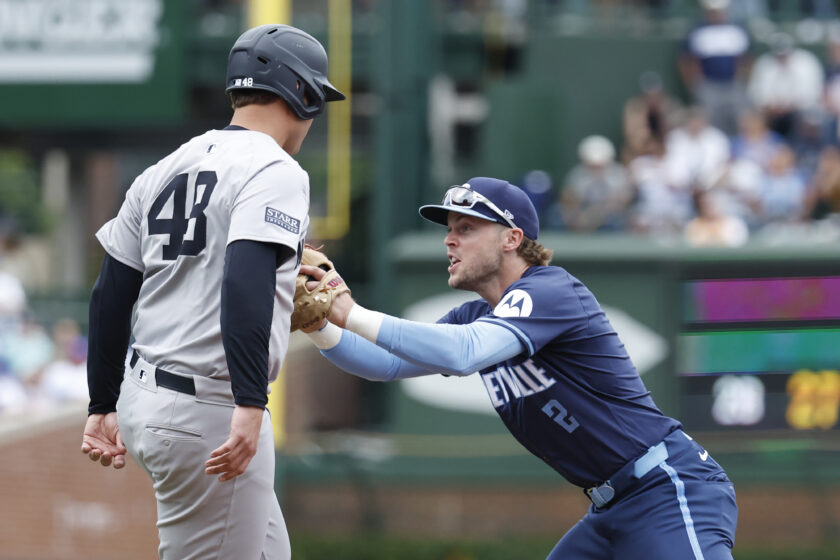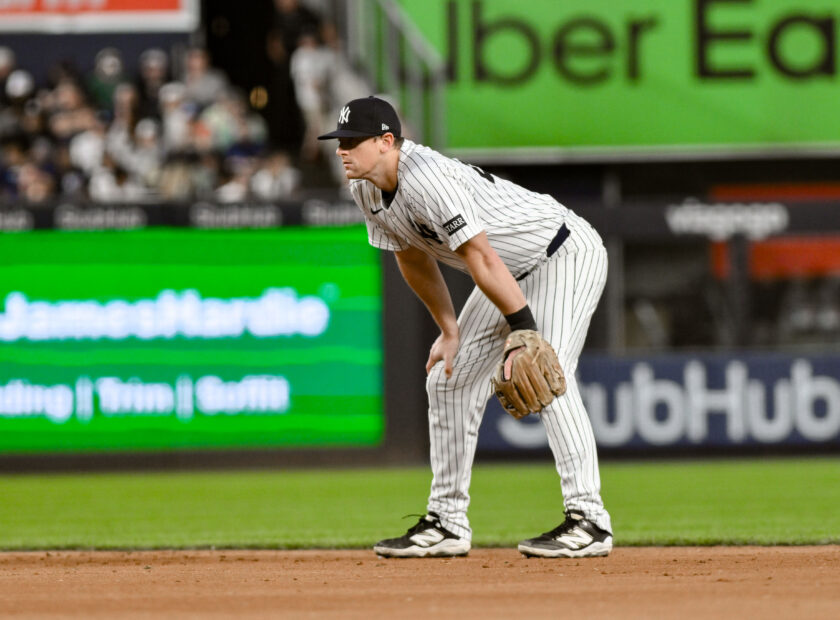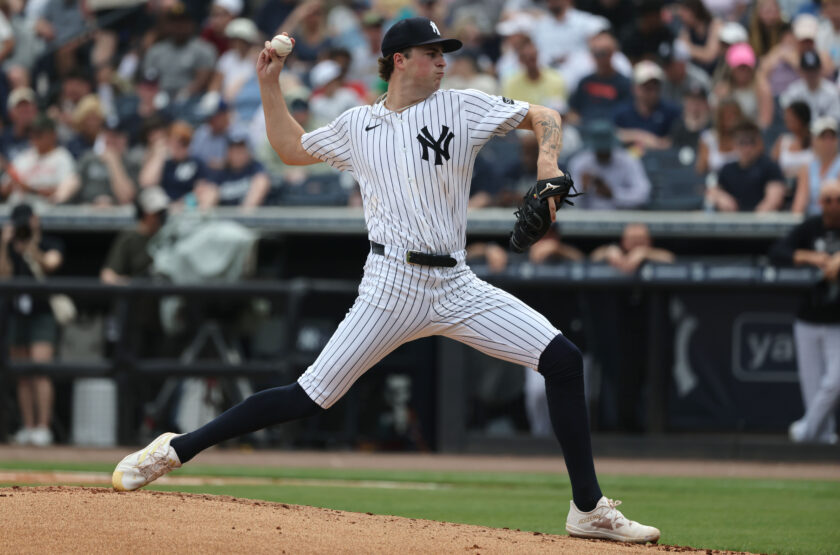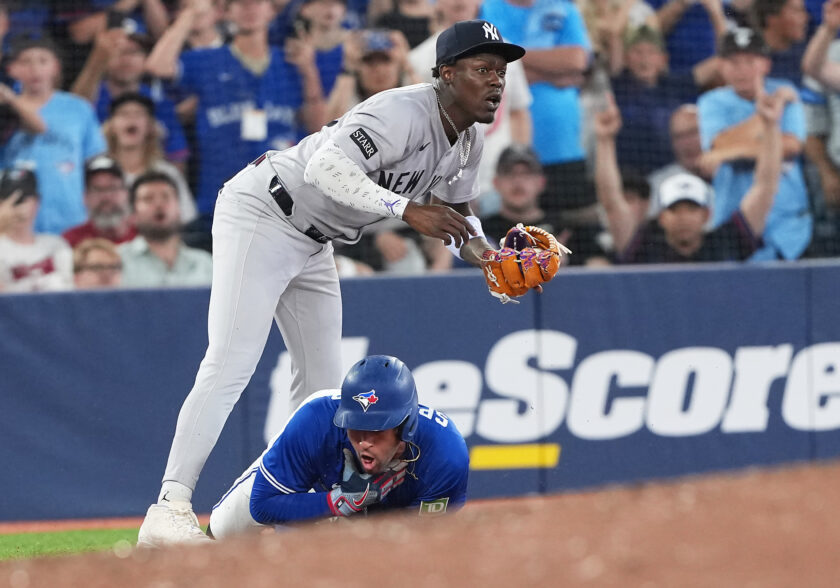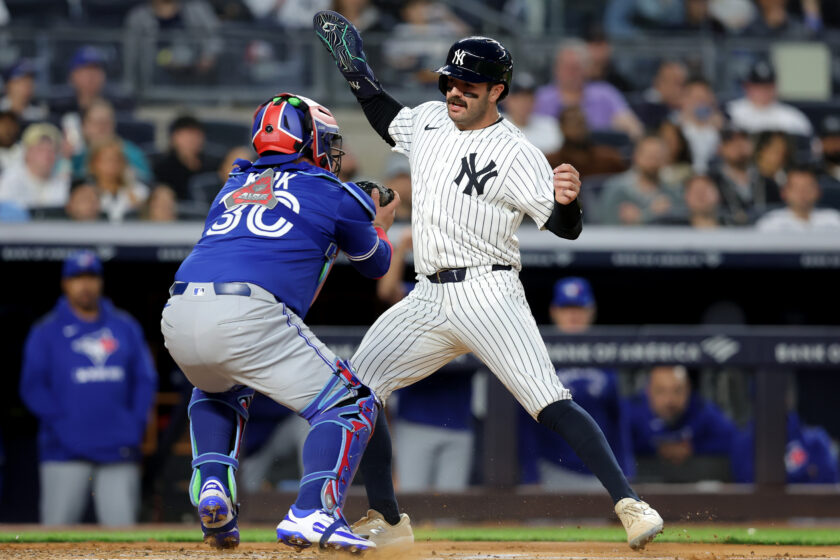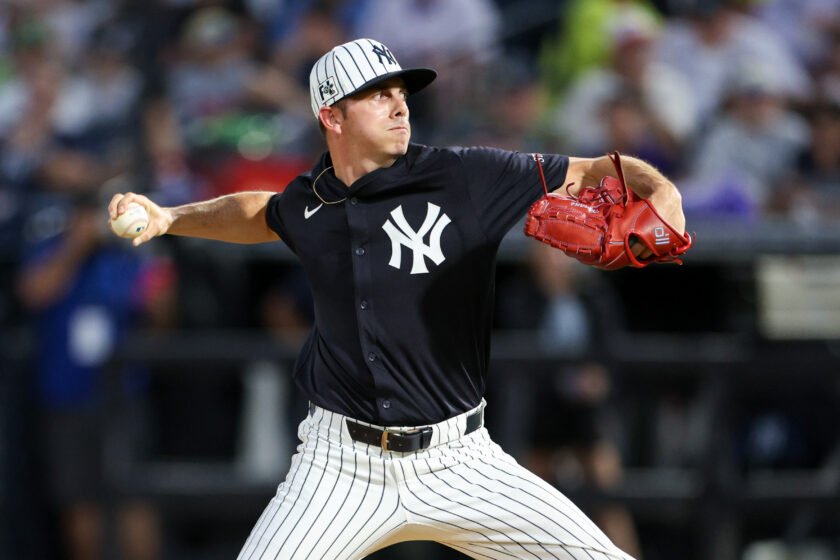Major League Baseball is changing the game and Tyler Clippard disapproves
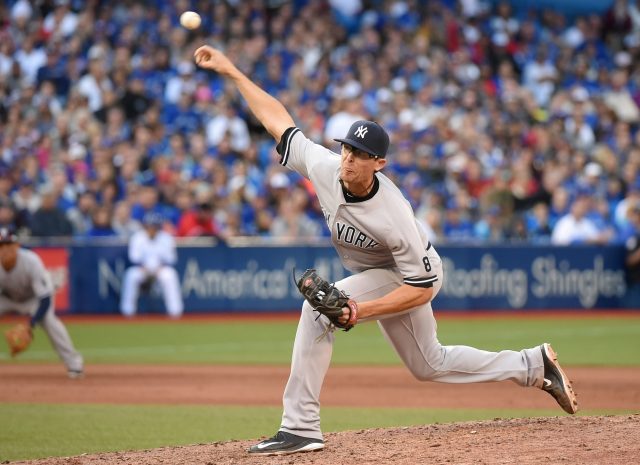
With the new intentional walk rule in place, Major League Baseball is once again changing the game. However, Yankees’ reliever Tyler Clippard disapproves of the new changes.
[dropcap]O[/dropcap]ver the last few seasons, Major League Baseball has made some major changes. They’ve implemented instant replay, added pitch clocks and now have barred intentional walks in an effort to speed up the game.Some baseball players are in favor of speeding up the game, especially since playing 162 games plus the postseason is a grueling task. However, most ball players have met the changes with resistance.
[sc name=”Yankees Link Related” link=”elitesportsny.com/2017/02/23/new-york-yankees-dellin-betances-strikes-chris-carter-nasty-curve-video/” text=”Dellin Betances looks nasty in simulated game (Video)” ]
The latest player to do so was New York Yankees reliever Tyler Clippard, who didn’t understand what commissioner Rob Manfred was trying to accomplish.
“What are we really trying to do here?” Clippard said in last Thursday’s edition of the New York Daily News. “We could just play home run derby if you really want to speed things up. I’ve never once had a fan say to me they wish the games were shorter. The only people you ever hear that from are ones who don’t like baseball. They’re not going to watch the games anyway.”
Believe it or not, Clippard has a point. Most baseball fans don’t complain about the length of games, as long as they get their money’s worth. While changes such as instant replay, barring home plate collisions and pitch clocks have worked, taking away intentional walks seems pointless.
[sc name=”Yankees Center” ]
Getting rid of intentional walks isn’t going to speed the game up any faster. Intentional walks only trim the game by 30 seconds —but only if they’re thrown. Major League Baseball saw 0.38 intentional walks per game in 2016, which was the lowest since intentional walks became a stat in 1955.
While pitchers and managers haven’t implemented the intentional walk as much in years past, it’s still part of the game. And while rare, an intentional walk can be botched by human error.
Let paint you a picture: Pretend the Yankees are playing the Boston Red Sox in Yankee Stadium and Brett Gardner is at third with one out. Jacoby Ellsbury, entering as a pinch-runner, is at second, and first base is open with Gary Sanchez at the plate.[sc name=”Yankees Center Right” ]
Out of respect for Sanchez, you would intentionally walk him to set up the double play. But with the pressure of an extra-inning game, the pitcher accidentally throws the ball to the backstop, allowing Gardner to score.
Game over. Yankees win. Cue Sinatra’s New York, New York.
Need more convincing? Last season, Sanchez was the victim of being intentionally walked. However, he saw a pitch that looked hittable and ended up taking it for a ride. It was almost a home run, but Sanchez ended up settling for a SAC Fly Sanchez was initially getting a free pass to first base. Instead, he drove a run home on a pitch that ended up darting back towards the strike zone.

Yes, Major League Baseball is changing and change is inevitable. However, not all change will end up being beneficial to how baseball is played. There’s already talks of putting a runner at second during extra innings or limiting mound visits for managers.
While change can be a good thing, it seems the commissioner is only making changes for those that aren’t interested in watching baseball.
While the commissioner’s attempts to make the game more universal are noble, it’s important he doesn’t alienate the fans that do enjoy watching baseball year-round.
[sc name=”Yankees Link Next” link=”elitesportsny.com/2017/02/23/new-york-yankees-right-field-open-aaron-hicks-discusses-chances/” text=”With right field open, Aaron Hicks discusses his chances” ]When Delia isn't writing about baseball, she's watching baseball. When she's not watching baseball, she's reading about baseball. And when she's not reading about baseball, she's writing about baseball. Delia is currently a contributing writer for the New York Yankees. She also the lead writer for the Yankees website Bronx Baseball Daily and occasionally covers games for the Staten Island Yankees.

